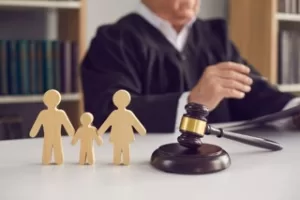The divorce process in Indiana (or in any state, for that matter) can, depending on the circumstances, be a long, drawn-out, stressful affair. It is not uncommon for divorces to last a year or more. However, certain issues often arise which are of urgent concern to the parties in a divorce, and require immediate action either by the parties or the court. How are such matters dealt with? Most of these issues are addressed through the use of “provisional orders,” and this article will outline the details of such orders.
Under Indiana law, a divorce may not be finalized until at least 60 days after the initial petition is filed. (Indiana Code § 31-15-2-10). This means that, at a minimum, the two parties to a divorce will be tied up in the case for two months. Practically speaking, though, most divorces run considerably longer than the two-month minimum. However, the parties to a divorce usually come into the process with at least one or more significant issues which need to be resolved quickly, temporarily, and while the divorce is still pending. Some examples might be: who will continue to live in the marital residence, and who will leave? Who will pay the rent/mortgage for the marital residence? Who will have custody of the children, and what time will the non-custodial parent have with the children? How will the parties handle their respective financial accounts? These and other urgent issues can be temporarily resolved through the use of provisional orders.
Provisional orders are temporary orders issued by a judge, which aim to resolve these types of immediate issues while the larger case is pending. Indiana Code § 31-15-4 outlines the procedures, requirements, and proper uses of provisional orders. The Code holds that either party may petition the court for a hearing to request provisional orders on temporary maintenance, temporary custody and support, possession of property, counseling, and protective orders.
At the provisional hearing, both parties are entitled to present testimony, witnesses, or evidence which supports their respective cases. At the conclusion of the hearing, the judge will issue an order on the matters presented. These orders will stand until the divorce is finalized, unless otherwise modified by the court or the parties. It should also be noted that the parties do have the option, if they wish, to come to a provisional agreement on their own. Under such a circumstance, the parties would outline their resolutions on the major issues in question, and submit their agreed entry to the court. Subject to the court’s approval, the parties’ agreement would be entered as an order, to which both parties would be obligated to adhere pending the outcome of the divorce.
Provisional orders can be a useful tool for parties to resolve urgent issues on a temporary basis, while a divorce case is pending. Contact us if you have any additional questions or need assistance with a legal matter.
NOTE
All legal references are made with respect to Indiana law. Please check the laws of your local jurisdiction if you live in another state.
The articles in this blog are for informational purposes only. No attorney-client relationship is established through the publication of these articles.







